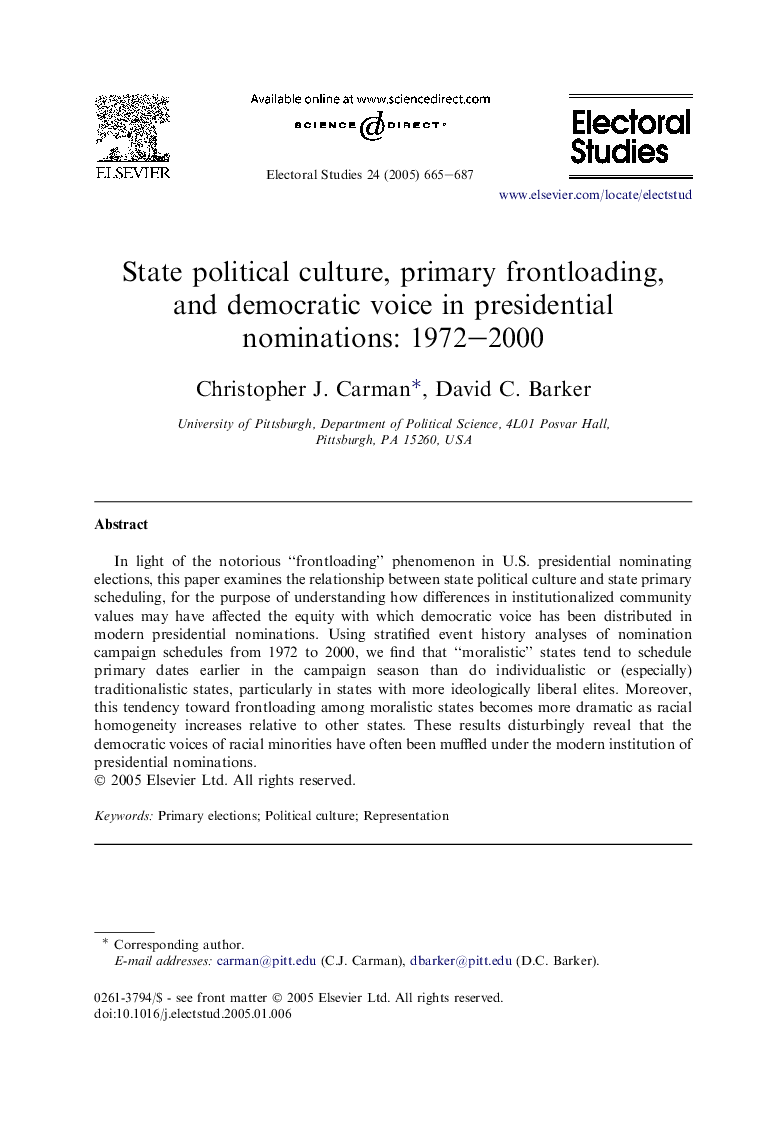| Article ID | Journal | Published Year | Pages | File Type |
|---|---|---|---|---|
| 10504026 | Electoral Studies | 2005 | 23 Pages |
Abstract
In light of the notorious “frontloading” phenomenon in U.S. presidential nominating elections, this paper examines the relationship between state political culture and state primary scheduling, for the purpose of understanding how differences in institutionalized community values may have affected the equity with which democratic voice has been distributed in modern presidential nominations. Using stratified event history analyses of nomination campaign schedules from 1972 to 2000, we find that “moralistic” states tend to schedule primary dates earlier in the campaign season than do individualistic or (especially) traditionalistic states, particularly in states with more ideologically liberal elites. Moreover, this tendency toward frontloading among moralistic states becomes more dramatic as racial homogeneity increases relative to other states. These results disturbingly reveal that the democratic voices of racial minorities have often been muffled under the modern institution of presidential nominations.
Related Topics
Social Sciences and Humanities
Social Sciences
Geography, Planning and Development
Authors
Christopher J. Carman, David C. Barker,
